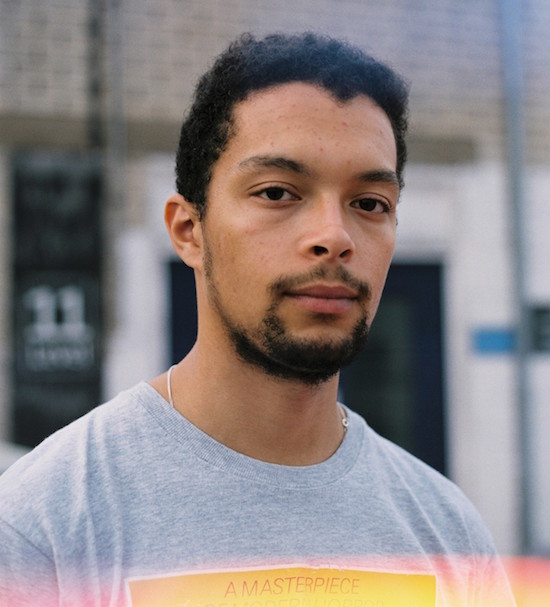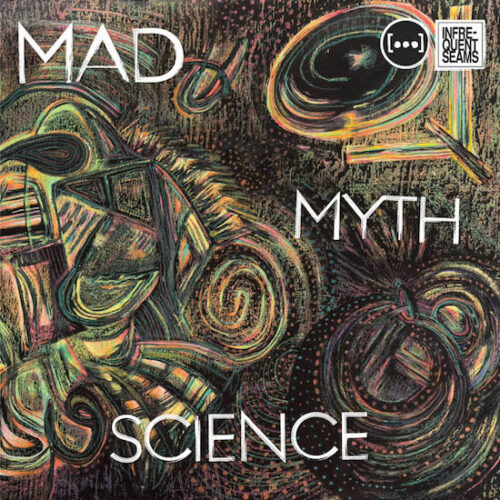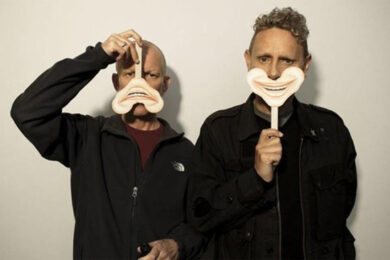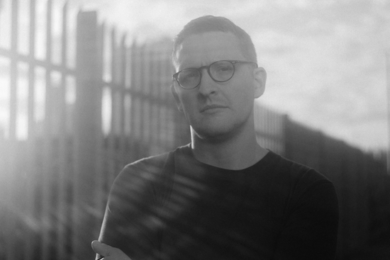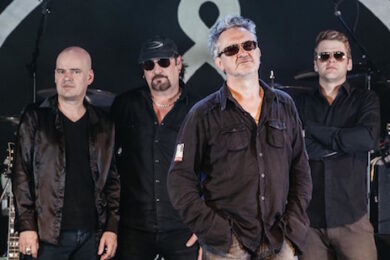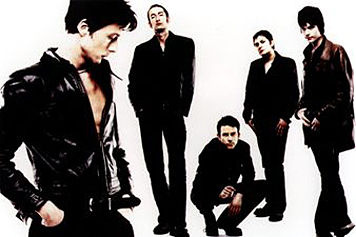All photographs courtesy of 2257ad
Speaking to Bristol-based Omar McCutcheon, the producer known as Batu, it becomes clear that his music is the product of a continuum; a process of knowing how the music he makes is influenced by the past and the knowledge of where it needs to go. He’s informed by the sounds and heritage of UK dance music culture, striving to capture the energy inherent in jungle, dubstep and grime that inspired him, and then splicing it into his own production. Omar also draws from his own experiences of hearing the music out, transplanting that emotional response into his music. The end result is a concoction of memory and innovation.
His releases to date, from his debut on Pinch’s Cold imprint, to a forthcoming release on Mistry, are also all typified by an urge to create tracks that operate in uncharted sonic space. That desire to keep the sound of the UK progressing in a positive trajectory is imperative to how McCutcheon operates – the ethos that is stamped throughout his work is to make something tangibly related to the past, yet not simply a regurgitation of it. Starting his label after only a handful of releases is testament to that, with Timedance marking McCutcheon diving deeper into what has compelled him to produce the music he does. The inaugural release, his own ‘Cardinal’/’Domino Theory’ 12", showcases production that’s harnessed to the design of what has came before yet, shaped by a lower tempo, percussive elements and sub-heavy experimentation, nods firmly to the present. The label, which has since spawned a club night of the same name, also functions as a space for McCutcheon and like-minded producers to push what they’re doing in a more obtuse direction, with a second release forthcoming from Metrist in his L.SAE guise.
In advance of that, we discussed projecting his influences into his own productions and bringing his musical ethos to the label and club night.
So far it’s been a busy year for you, setting up the label and putting out its debut release, the ‘Numen’/’Cazz’ EP on Hotline and a forthcoming Mistry one.
Omar McCutcheon: It’s been refreshing to immerse myself in it all and be more proactive with making these things happen. A lot of producers are naturally quite coy, and wait for things to happen for them. I’ve realised it doesn’t always work like that – you need to be proactive, I guess. Getting the releases out there has been great because I’ve been sitting on lots of music and had some long gaps between releases. It was in these periods I thought a lot about what I wanted to do, which was forming the label and starting the nights. The main thing I took away was that you don’t always have to rely on other people; I could do things myself, to some extent.
I guess that approach also opens your music up to a wider creative scope.
OM: Yeah, I want to branch out into other places, and don’t want to get stuck or complacent in terms of what I’m writing. It’s good to build relationships with labels, of course, but at the same time I want to work with different outlets for different music. If I stayed with one label, I’d get too many preconceptions about what I was making, so I think it’s important to work with a variety of people with different ideas.
With that in mind, your music seems to operate around the lower tempos, seemingly marking a more progressive relationship with the development of the ‘UK sound’, rather than one that’s steeped in nostalgic reference to those genres.
OM: Definitely – this came about from listening to people like Theo Parrish, and other slightly slower tempo house and techno. I felt there’s more space for percussion and groove – a steppy-feel I guess. 130 [bpm] techno is often quite banging and 4/4; it does resonate with me, but when I started to write music in this style, I felt that I needed to create more space for me to able to explore what I wanted to do.
So is it transferring the energy and possibility from the UK sound into a broader framework?
OM: UK dance music heritage is the bedrock of what I do, but I’ve started to listen to other types of music over the years. I still want to keep a solid UK foundation because I feel it’s an important part of my identity and not something I feel I need to hide.
There’s a kind of futuristic energy to UK stuff that is quite unique, and it’s something that is lacking in techno and other dance music sometimes, for me. I’m looking to capture and transfer that energy to my own work.
Also, with dubstep and jungle, there was a sense of openness and inclusivity in regard to what you could do. That idea of having a ‘sandbox’ to write the music you want.
OM: I think it’s vital to keep an open framework, so people can bring their own ideas to it. I don’t want things to get stuck around a specific idea of what my or my peers’ music should be – it has to take you somewhere and function within a rough tempo range; apart from that, anything goes, and that’s what can keep things moving forward.
It seems to be the fewer preconceptions about how a track can be made, the lesser the chance there will be a bottleneck of production, and a stronger framework for things to keep progressing.
OM: I definitely think that. You can tackle these issues by not defining things too much. Keep people guessing and stay ahead of the curve. With myself and other people I associate myself with, there’s a feeling that things need to keep moving by trying to be actively progressive. Right now I feel there’s scope for more ‘out there’ stuff – there’s a group of younger producers, Like Bruce, Samuel and Laksa, who feel we can move things in that direction.
We’re also keeping an eye on the context of a club and functionality, but it’s fun to play around with it! To push music to its boundaries and offer something that is distinct. You know, what can be done within the context of a club but sounds alien. This whole psychology of club music isn’t new, but there seems to be vitality in young emerging producers at the moment with that approach. When you’re DJing you can build an atmosphere: you can present something weird and create or release tension with it. The context of where you’re playing defines what you can get away with. It definitely feeds back to how I think about where my music fits.
How does your label act as an extension of your approach to thinking about music? Your first release on Timedance had a much broader feel, in terms of really bringing out the drivers in why you make the music you do – did you make these tracks with the idea of creating a label in mind?
OM: It is a platform to do something more like that. I made those tracks [‘Cardinal’ and ‘Domino Theory’] in the same week, after having a long summer of writer’s block and being very frustrated creatively. They burst out of nowhere and seemed to fit together for me.
Maybe some labels would be reluctant to release them, but I thought the tracks were strong enough to come out. There’s not always a need to cater to someone else if what you’re doing fits your own brief. I thought about doing the label before those tracks came out, but when I wrote them it felt like everything had clicked into place. The second record, the debut release by L.SAE felt the same. The tracks are pretty daring and unique, it would have been such a shame if no one put them out.
With everything we’ve said, how do the nights you’ve started fit into creating a forum for representing those ideas?
OM: The nights came around through finding a lot of clubbing experiences a bit stagnant and oppressive. Clubbing has become a massive commodity – and that’s not necessarily something I’m against, in some respects, but you need spaces and environments where good DJs can prosper. I feel sometimes there’s a celebrity culture to clubbing now, people going to see a certain act rather than enjoying the party and the atmosphere. It’s had negative effects on clubbing for sure, along with a host of other things. I felt there were things I could address by doing my own night, just the same as with the label. I just want to try and provide a good space for good DJs to come and play, let them create the narrative of the night and hopefully that will resonate with the crowd.
‘Dekalb’/’Collate’ is out on September 10 via Mistry, while L.SAE’s ‘The West End As It Will Be’/’Line Sunk Like I’m Sunk’ is out tomorrow, August 28, on Timedance

